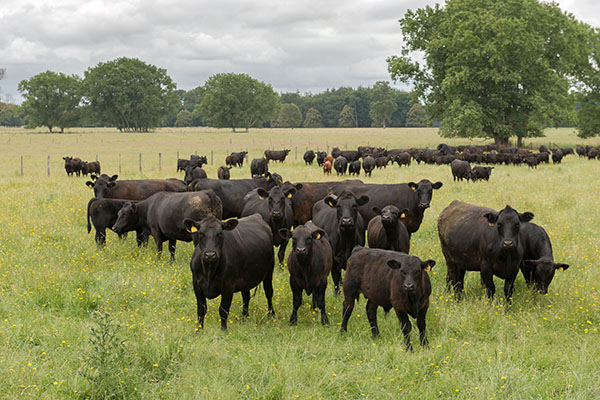Forage Unit
100 Years of Forage Research and Extension at UKREC
UKREC faculty and staff, alongside those at the Lexington campus, have conducted a century of extensive research on the production and management of pasture crops and cut forages. Equally important are the educational outreach programs that share newfound knowledge with the farming community. Many of those are held in Princeton to serve Western Kentucky.
Rotating forages such as clover and timothy with corn and wheat to improve yields and soil fertility were among the earliest trials at the Princeton substation. Lime and fertilization trials began in 1927 and continued through the mid-1950s.
Pasture experimentation also began within the first few years, showcasing the cooperative work with the university’s animal scientists. Beginning in 1929, average yearly gains of steers were recorded to determine recommendations for forage species, soil treatments and animal capacities.
According to early UKREC reports, this 20-year stream of research provided a strong incentive for soil fertility management of Western Kentucky pastures. The study showed that improved pastures could increase average daily gains by three and a half times. As a result of this demonstration alone, hundreds of thousands of acres of poor pastureland were improved.
Sam Lowry, the station’s superintendent from 1925 to 1963, gave many farmer presentations during his tenure and often shared his vision of a thriving livestock industry through the development of better pastures.
"I am not telling you to 'go to grass,' but it is my firm belief that if Kentucky farmers, especially those outside the central region, will grow more grass, they will be headed in the direction of happier days."
Samuel Lowry, Superintendent, Transcript from 1930s short course
Research & Extension Articles
Published on Jun. 16, 2025
As forage research was well underway in Princeton, UK agronomist E.N. Fergus stumbled into forage history on the other side of the state in 1931 when he was asked to judge a sorghum syrup show. Invited to also visit the Suiter Farm in Menifee County during this trip, Fergus observed “an excellent stand of grass on a steep hillside.”
Read ItemPublished on Jun. 12, 2025
Alfalfa has been a valued crop in Kentucky for hay production. Its high nutritional value and benefits for soil health, including its ability to fix nitrogen from the air to improve soil fertility, make it an excellent choice for livestock production.
Read ItemPublished on Jun. 12, 2025
The importance of clover, another nitrogen-fixing legume, was well known to UKREC’s early agronomists and grazers. The earliest trials at Princeton included clover varieties, but red clover did not always perform as well as others. Fergus worked with many agronomists to improve red clover adaptability to Kentucky conditions.
Read ItemPublished on May. 12, 2025
Cool-season forages such as tall fescue, orchardgrass, and Kentucky bluegrass are the primary pasture grasses in Kentucky. Other species such as perennial ryegrass and festulolium can also be used in pasture systems. Little is known about the effect of variety on the grazing tolerance of these cool-season grass species.
Read ItemPublished on May. 12, 2025
Summer annual grasses provide an important forage crop option for producers in Kentucky. These grasses are mainly used as emergency or supplemental pasture, silage, or hay crops, but little information is available on their yield potential.
Read Item
Master Grazer
Master Grazer is an outreach program providing producer workshops with the most up-to-date research on environmentally sustainable and economically feasible grazing management. Our fencing and grazing schools offer hands-on learning experiences through field days, pasture walks, workshops, conferences, and farm visits.
